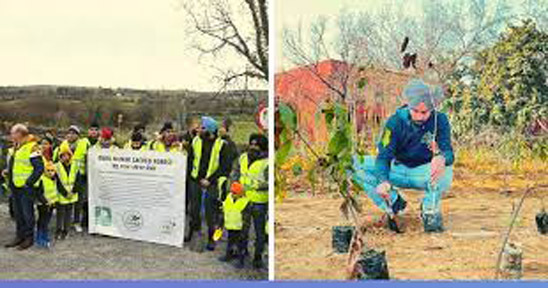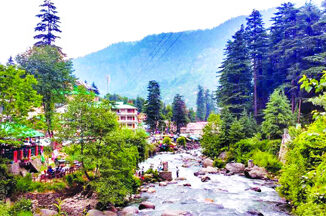
WASHINGTON, D.C. (TIP): A US-based Sikh organization has announced the planting of 400 forests in India and other parts of the world as part of its climate action. According to the announcement made on the occasion of Sikh Environment Day (SED), EcoSikh said it has planted a forest of 1150 trees in Ireland and of 500 trees in Derbyshire, the United Kingdom. In addition, a forest of 250 trees was planted in Surrey, Canada. EcoSikh, based out of Washington DC, has collaborated with local governments and gurdwaras in its projects. These forests are called ‘Guru Nanak Sacred Forests’, named after the founder of the Sikh faith. This campaign started in 2019 when Sikhs celebrated his 550th birth-anniversary, EcoSikh said in a statement on Saturday. “The Sacred Forest project has become a community-based initiative and many hundreds have joined this massive grass roots campaign all across the globe. This is a solid step to mitigate the effects of climate change and the good news is that all trees planted are surviving in these thriving forests,” said Rajwant Singh, EcoSikh (USA), the founder and global president. He said over the last 36 months, EcoSikh has planted forests in many states across India including, Punjab, Haryana, Rajasthan, Delhi, Maharashtra, Gujarat and in Jammu. Each forest has 550 trees of native species. These forests are planted following the Japanese Miyawaki methodology and are tagged on Google maps all across Punjab and India, he said. Every year hundreds of Sikh institutions and Gurdwaras all across the world celebrate SED by taking step to reduce carbon footprints and to save water and energy. EcoSikh released a tool kit for the community to take action on SED which includes organic langar, nature walk, switching to LED bulbs and solar panels.





Be the first to comment